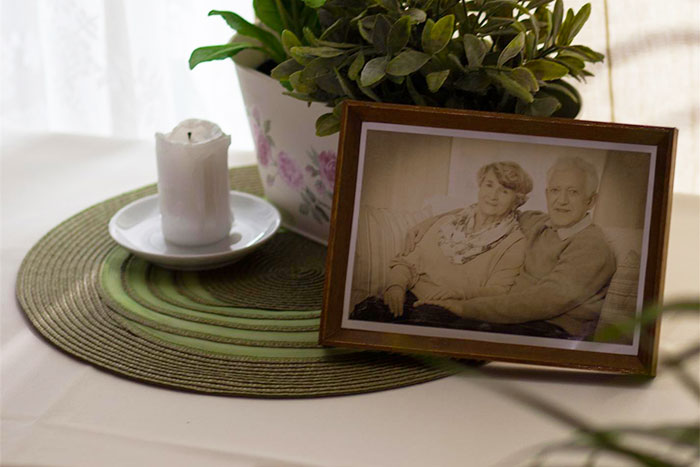Six Ways to Manage Your Grief

It is inevitable that we will grieve the death of a loved one at some point in our life. No matter who it is, what the cause, or how prepared you may have been, you may find it difficult to handle your grief. The intensity of your sorrow depends on your relationship with the person and the circumstances surrounding their death. Yet, while the significance of a death may differ from person to person, there are fundamental ways to best manage the grieving process.
"Always remember the grief is a process," advises Margaret Pancoast, CSW, bereavement coordinator at Angelic Hospice. "As much as you want to hasten it, it will not make it go away."
The late Swiss-American Psychiatrist Elisabeth Kübler Ross, MD first identified the stages of grief in 1969 in her book "On Death and Dying." A pioneer in near-death studies, these five stages: denial, anger, bargaining, depression, and acceptance became known as the Kübler-Ross Model. Later, she collaborated with David Kessler who also discussed the possibility of a sixth stage, "meaning." These stages occur naturally in our lives every day around many changes." he explains on his website, "They are tools to help us frame and identify what we may be feeling. But they are not stops on some linear timeline in grief. Not everyone goes through all of them or in a prescribed order. Our hope is that with these stages comes the knowledge of grief's terrain, making us better equipped to cope with life and loss. At times, people in grief will often report more stages. Just remember your grief is as unique as you are."
While the expression and effect of grief is indeed unique as the individual, there is a universal approach to managing mourning and working through the stages of grief. The following are ways to help you through your grief process:
- Let yourself grieve. It's not only okay to grieve, it's part of the healing process. "Tears help the heart when there is so much pain," says Pancoast. You will not avoid the pain of sadness by holding in your emotions. Express your feelings. Go ahead and cry, even yell in anger. Find a quiet place and talk out loud to your loved one. Journal your thoughts about your loss. Be mindful that your grief may come with guilt, and even physical symptoms such as nausea, aches and pains, sleeplessness or too much sleep, and maybe weight changes.
- Turn to your support system. Friends and family know you the best. They too may be grieving the loss which may provide a chain of support for each other. If you are faithful, gain solace in your faith and reach out to clergy for spiritual support.
- Join a bereavement support group. Networks of those with similar losses (spouse, child, parent) meet regularly, and unlike family and friends, give you a sounding board without the history or emotions that a family may have. You may be able to learn from those who are further along in the bereavement process. Pancoast also recommends reading books and articles about grief and loss of a loved one will better help you understand and manage your grief.
- Take care of yourself. Keep your medical appointments. Maintain a healthy lifestyle. Do not rely on alcohol or drugs to get you through. That is not a sustainable solution to grief. If you see that happening, seek professional help immediately. Value your own life.
- Count your blessings. Focusing on the positive around you will not only lift your spirit but also allow for the fond memories of your lost loved one to be a comfort to you. "Keep your loved one's name alive-- talk about all the amazing memories," says Pancoast. "Engage in hobbies and activities that bring you joy. Keep gratitude, empathy and compassion for others."
- Expect setbacks. As you navigate the grief process there may be days where you feel a setback. "Why," you may ask yourself "after all this time I'm feeling like I did before?" Certain triggers may bring back emotions that you felt you resolved. Life milestones such as holidays, anniversaries, weddings, births, graduations are all situations that can cause you sad reflection. Again, seek out your support system to help you through these times. Remember, you can manage your grief as it evolves.
Angelic Health provides bereavement support for the family of our hospice patients. If you need assistance finding grief or bereavement support please contact us at 609-822-7979 for and we will assist you in finding a group or support system in your area.
